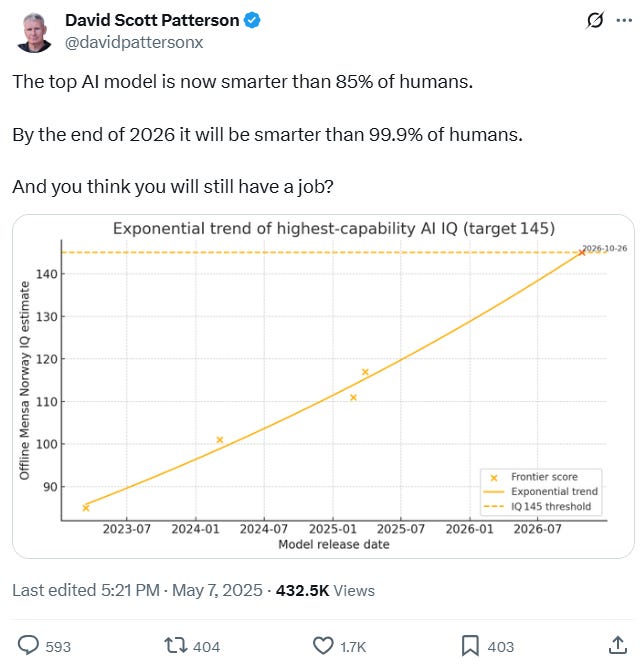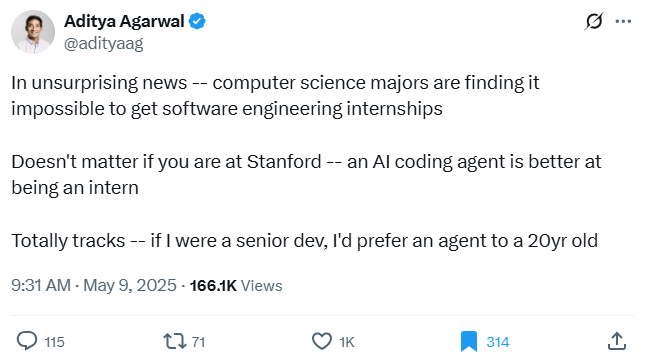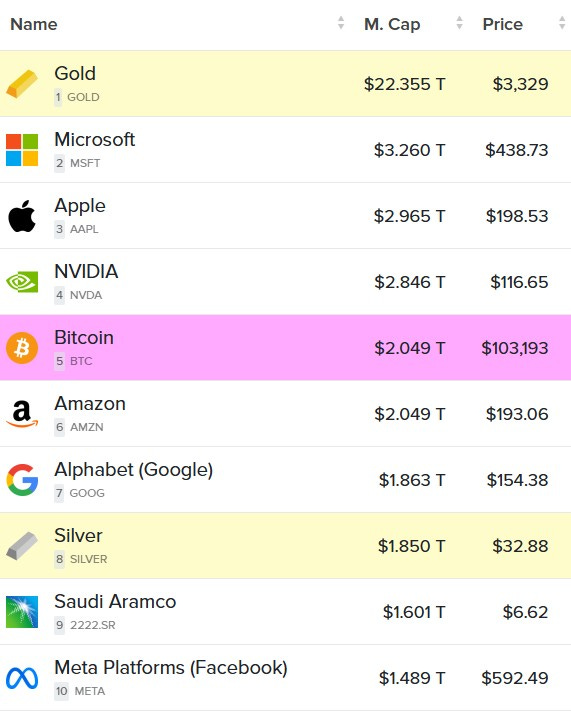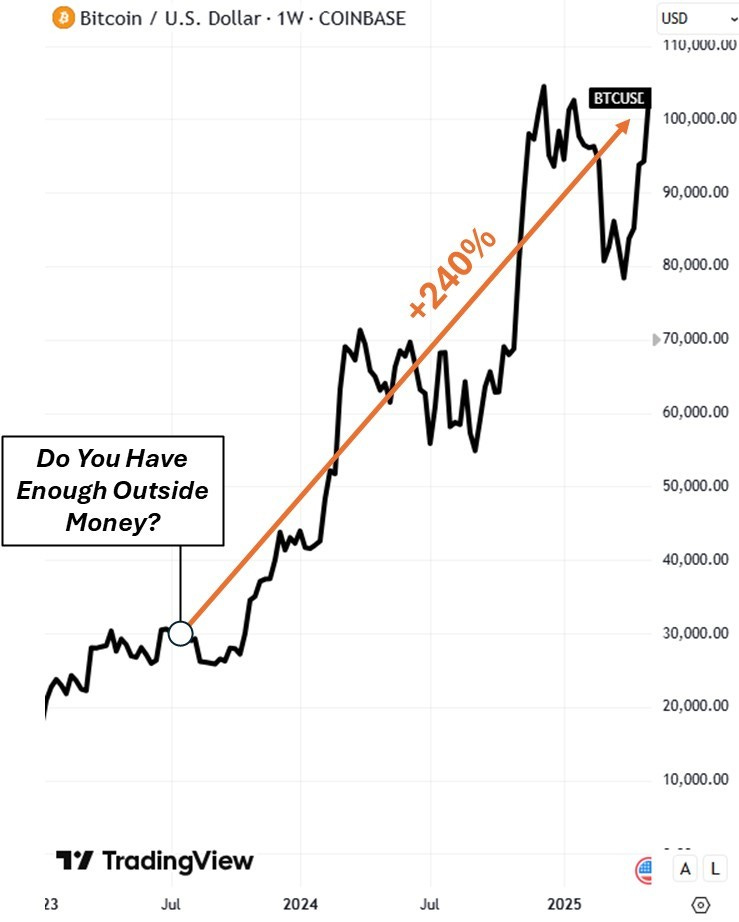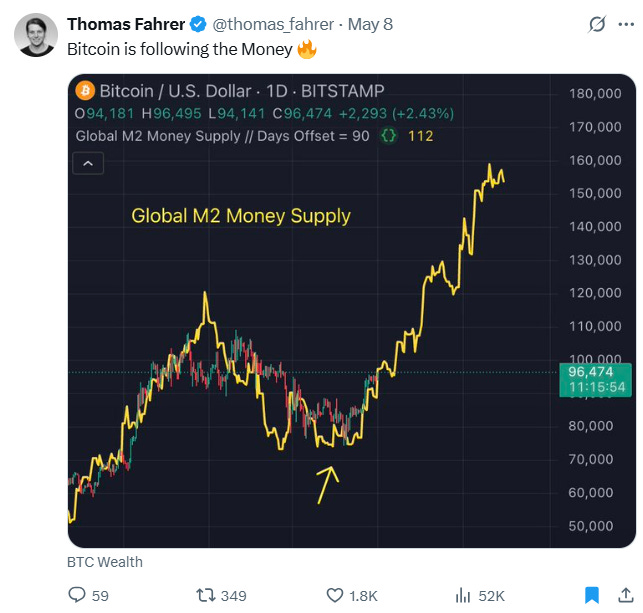Artificial Intelligence, Real Money
As common knowledge becomes worthless, hard assets become priceless
AI will not replace humans, but those who use AI will replace those who don't.
Ginni Rometty, former CEO of IBM
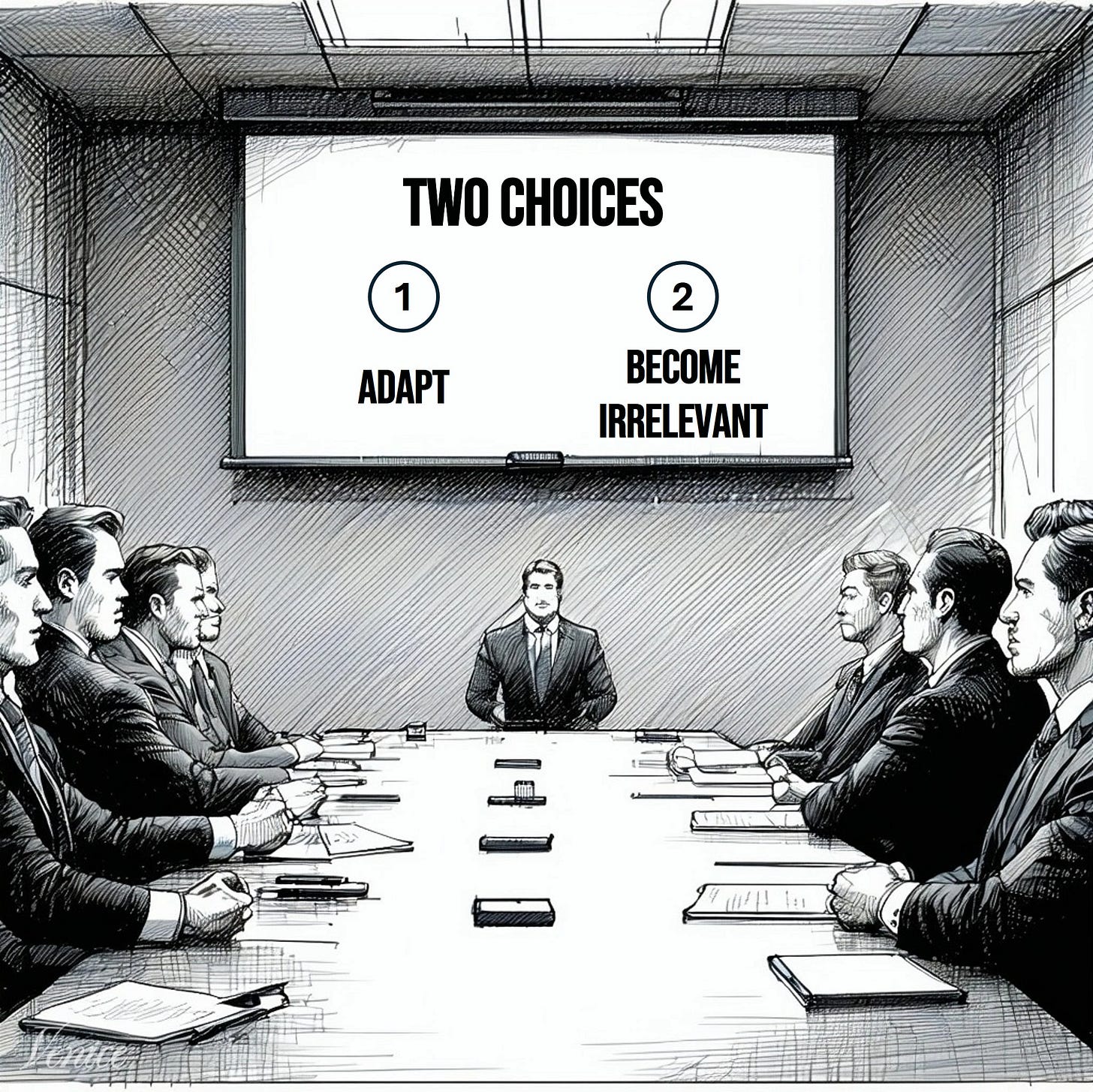
Sometimes you read an article, email, or post that articulates exactly what you've been thinking but couldn't quite express so clearly. That rare moment when you find yourself nodding vigorously, thinking "yes, exactly this!" It happened to me earlier this week when an email from the CEO of Fiverr went viral on social media (Fiverr is an online marketplace that connects freelancers with clients).
Micha Kaufman sent a brutally honest message to his entire team about AI that perfectly captures what I've been telling friends, family, and you—my loyal readers—for the past two years. The email hits hard, but he's speaking the truth we all need to hear. So, I grabbed the screenshots of his email, gave them to Grok, and extracted the text for you.
Hey team,
I’ve always believed in radical candor and despite those who sugar-coat reality to avoid stating the unpleasant truth. The very basis for radical candor is care. You care enough about your friends and colleagues to tell them the truth because you want them to be able to understand it, grow, and succeed.
So here is the unpleasant truth: AI is coming for your jobs. Heck, it’s coming for my job too! This is a wake-up call.
It does not matter if you are a programmer, designer, product manager, data scientist, lawyer, customer support rep, salesperson, or a finance person— AI is coming for you.
You must understand that what was once considered “easy tasks” will no longer exist: What was considered “hard tasks” will be the new easy, and what was considered “impossible tasks” will be the new hard. If you do not become an exceptional talent at what you do, a matter you will face the need for a career change in a matter of months. I am not trying to scare you, I am not talking about your job at Fiverr, I am talking about your ability to stay in your profession in the industry.
Are we all doomed? Not all of us, but those who will not wake up and understand the new reality fast, are, unfortunately, doomed.
What can we do? First of all, take a moment and let this sink in. Drink a glass of water. Scream hard in front of the mirror if it helps you. Now relax. Panic hasn’t solved problems for anyone. Let’s talk about what would help you become an exceptional talent in your field:
Study, research, and master the latest AI solutions in your field. Try multiple solutions and shortlist the best ones. Become a superuser of those. It will give you an edge over others per unit of time with better quality per deliverables. […]
Find the most knowledgeable people on AI in your field and start collaborating with them in a meaningful way. Time is the most valuable asset we have—if you’re working like it’s 2024, you’re doing it wrong! You are expected and needed to do more, faster, and more efficiently now.
Become a prompt engineer. Google is dead. LLM and GenAI are the new basics, and if you’re not using them as experts, your value will diminish fast.
Get involved in shaping the way you become more efficient using AI tools and technologies. It does not make sense to hire more people before we learn how to do more with what we have.
Understand the company strategy well and contribute to helping us achieve its goals. Don’t wait to be invited to a meeting where we ask each participant for ideas— there will be no such meeting. Instead, pitch your ideas proactively. Stop waiting for the perfect place or work environment— create it! Pitch ideas that will help anyone wants to help themselves. I vow to help anyone who wants to help themselves.
[…]
Every leader and manager worldwide should send a similar wake-up call to their teams. While many executives privately worry about AI's impact, they choose comfortable silence over uncomfortable truth. This isn't kindness—it's negligence. By challenging his team to adapt rather than be replaced, Kaufman isn't being cruel; he's giving them something far more valuable than false security: a fighting chance at continued relevance in a rapidly changing world.
Some industries will have to adapt radically or face extinction. Higher education, for instance, simply doesn't work anymore in its current structure. Asking students to write a paper has become the equivalent of asking them to copy-paste a prompt into ChatGPT. The traditional model is broken beyond repair.
For students who want to learn, ChatGPT is available 24/7, and can explain the same thing in as many ways as the students need, until they understand.
Now, more than ever, genuine expertise will command a premium. AI will produce most of the content going forward, with the human expert's role shifting to quality control and direction. Anyone can ask ChatGPT a question, but not everyone can craft prompts that extract the maximum value from these systems. Prompt engineering—knowing exactly how to communicate with AI—is rapidly becoming one of the most valuable skills in the economy.
But how do you train the next generation of experts when you don’t need interns anymore?
In The Unstoppable Rise of AI and Outside Money, I looked at this from another angle: a way to reclaim your time.
I use AI tools every day, multiple times, and it has cut down the time it takes me to complete certain tasks, not by 10%, 20%, or 50%, but most of the time by 90% or 95%, which means I can complete tasks 10 to 20 times faster than before. I would have expected most people to embrace such a revolution, but when I look around me, surprisingly, not many people use AI.
Even if you have no interest in AI, let me ask you a very French question: Are you interested in getting more free time? If I’m correct in assuming the answer is yes, then you are likely leaving a lot of time on the table by not using AI.
This arbitrage is temporary, though. Expectations of what you should produce are going to rise, and you won’t be able to meet them if you don't use AI.
What's truly remarkable is how rapidly AI capabilities have advanced over the past two and a half years. The competition between OpenAI (ChatGPT), Anthropic (Claude), xAI (Grok), and DeepSeek in China is pushing these companies to release increasingly powerful models at a breakneck pace. This isn't just evolution—it's revolution in real time.
The reason these tech giants are racing to release increasingly sophisticated models isn't just technological one-upmanship—it's the pursuit of market share in what promises to be one of the largest industries in human history.
Microsoft, with its early $13.75 billion investment in OpenAI, positioned itself brilliantly. That investment could generate a $200 billion return for Microsoft by 2030. Not bad for a company that was once ridiculed for missing the internet and mobile revolutions.
Meanwhile, xAI, founded by Elon Musk and recently merged with X (formerly Twitter), is raising financing at a staggering $120 billion valuation. The company behind Grok is training its models using the world's most powerful AI data center, aptly named Colossus. The arms race is fully underway.
But perhaps the most interesting recent application of AI isn't creating content or answering questions—it's designing new financial products. Michael Saylor, the chairman of Strategy (formerly MicroStrategy), revealed this week how he used AI to design new types of securities and pressure his legal team to deliver them in record time. Watch it. This is how CEOs and leaders should use AI.
This is undoubtedly the future: experts and specialists relegated to the final stage of a process while AI handles the heavy lifting of ideation and iteration. The AI never says no, never gets tired, and knows (almost) everything. You just need to know how to ask the right questions.
Saylor has transformed what was once a struggling software company with a $1 billion market cap in August 2020 into a $110+ billion behemoth that may soon enter the S&P 500. He multiplied his company's valuation by implementing an aggressive and innovative strategy to accumulate as much Bitcoin as possible.
In a world where AI threatens to disrupt countless industries and render many business models obsolete overnight, Saylor's strategy points to a fascinating paradox: the solution to digital disruption might be found in the digital world itself—specifically, in an asset that cannot be created out of thin air by central banks or replicated by even the most advanced AI. While algorithms can generate endless content, code, and designs at near-zero marginal cost, Bitcoin's mathematically enforced scarcity makes it immune to the deflationary pressure that AI will exert on virtually everything else. It's a digital lifeboat in a sea of AI-induced creative destruction.
Earlier this week, Bitcoin reached a market capitalization of $2 trillion, making it the fifth-largest asset in the world by market capitalization. The 16-year-old crypto asset has overtaken both Amazon and Alphabet, with its price currently hovering just above $0.1 million. That's not bad, but it's still a fraction of gold’s market capitalization.
Those who backed up the truck after reading my piece "Do You Have Enough Outside Money?" in July 2023 have done exceptionally well. In these times of high uncertainty, both gold and Bitcoin have outpaced pretty much everything else. For those who may not have read this piece, here is a short excerpt on what outside money is:
Outside money is money created through labor, time, and human ingenuity. It is tokenized human capital. It represents work. Not just digits in a spreadsheet that a central bank can alter. It cannot be created by fiat, i.e., by decree. Examples of outside money include gold, commodities, and… cryptographically secured assets like Bitcoin.
While AI may unleash an era of abundance by driving the cost of expertise toward zero, the path to get there will be anything but smooth. We're entering a phase where jobs will be replaced at a pace that far outstrips our ability to create new ones. When AI can write legal briefs, diagnose diseases, and create marketing campaigns at a fraction of the cost and time, entire industries face rapid obsolescence. With services and goods suddenly being produced at dramatically lower costs, the economic ripple effects will be profound.
Countless industries are about to be upended–from legal and accounting to creative services and software development–creating an environment where picking winners and losers becomes nearly impossible. This explains why many investors are retreating to neutral assets that sit outside the turmoil.
And how will governments respond to millions of displaced workers? If history teaches us anything, they'll fire up the money printer–creating stimulus packages, universal basic income trials, and expanded social safety nets to soften the landing for those left behind. This isn't speculation; it's the playbook they've used for decades.
In this context, it makes perfect sense that forward-thinking investors are flocking to outside money like gold and Bitcoin. These assets can't be conjured out of thin air by central banks or devalued through monetary expansion. When governments try to print their way out of AI-induced disruption, these stores of value will likely shine brightest.
We are living through an unusually volatile period, with tremendous technological, economic, and geopolitical uncertainty. The rise of the gold price is a symptom of this uncertain future. It is simply not normal behavior for the largest asset in the world by market capitalization to surge 70% in less than two years.
After such a meteoric rise, what's next? One thing that always concerns me is when mainstream media starts enthusiastically covering a particular investment. That's why the following Barron's recent cover on gold raises red flags.
While the US dollar remains the world's reserve currency and likely will for some time, gold appears to be regaining market share as the global reserve asset. The question is whether Bitcoin might also play a significant role in this new world order.
Historically, Bitcoin has tracked the Global M2 money supply with almost eerie precision, just with a 3-month lag. It's essentially become the financial equivalent of a canary in the coal mine for fiat debasement—the asset most sensitive to monetary expansion.
For those unfamiliar with monetary terminology, M2 is a measure of the money supply that includes cash, checking deposits, and easily convertible 'near money' assets. When central banks expand this measure, effectively creating new currency, Bitcoin has historically responded with remarkable predictability after a short delay.
This sensitivity makes Bitcoin not just a hedge but a leading indicator. Long before inflation shows up in consumer prices or bond yields, Bitcoin's price movements signal what's happening behind the scenes in the monetary system. The chart below shows where we stand today, with central banks once again firing up their digital printing presses. If this pattern holds, the next three months should be interesting.
Bonus: How I Use AI for Vincent’s Corner
It will come as no surprise to my regular readers that most of my newsletters have been co-written with AI assistance. Writing a piece like the one you just read takes me about 90 minutes. I save tweets or posts I want to feature when I see them, I think about what I want to write during the month, but the writing process itself is extremely fast.
Here is my AI Dream Team. I use ChatGPT o3 for reasoning tasks. This thing is an absolute beast—it can work on a problem for 5 to 10 minutes before giving you an answer. Perfect for digging through large documents or solving complex problems. Just make sure you actually select o3 in the model list and not 4o, which is the default when you use the ChatGPT app or website.
If I want to understand what's going on in the world, I use Grok. Its direct access to the X feed gives it a real edge over competitors when it comes to real-time information.
But when it comes to writing, I'll always go back to Claude Sonnet 3.7. It remains the best in class for transforming my thoughts into something worth reading with your morning coffee.
The writing process itself is remarkably efficient. Here is how I do it: I record a detailed voice prompt in ChatGPT outlining what I want to cover, it’s the best agent at transcribing what I say, even with my (barely noticeable) French accent, then pass that text to Claude, which I've trained on all my previous newsletters to match my writing style. I provide the vision, the storyline, and the examples, but Claude handles the prose.
My partnership with these different AI agents lets me focus on what truly matters–the ideas themselves–rather than agonizing over sentence structure. I currently pay for four different AI agents–not because I'm indecisive, but because in the age of artificial intelligence, even my digital assistants need assistants. While my wallet may be lighter, my schedule is suddenly full of that rarest of modern luxuries: free time. Get the paid versions of all these models. It makes a huge difference.
Closing Thoughts
As I wrap up this newsletter, I can't help but feel the window for getting up to speed on AI is rapidly closing. The gap between those who master these tools and those who don't widens daily. In the not-so-distant future, AI fluency won't be a competitive advantage—it'll be table stakes. And a similar clock is ticking on wealth preservation.
Don't be the person left standing on the side of the road, clutching a résumé full of obsolete skills and a portfolio that will be decimated by the impact of AI and the inevitable currency debasement.
The question isn't whether you should act—it's whether you'll act while you still can.
Nothing in this newsletter constitutes financial or investment advice. All content is provided for informational and entertainment purposes only. I'm just a guy with a keyboard, some AI assistants, and opinions about the economy—not your financial advisor. Financial markets are unpredictable, and any investments you make based on what you read here (or anywhere else) are entirely at your own risk. Always do your own research and consider consulting with a qualified financial professional before making significant investment decisions. Past performance of any asset mentioned is not indicative of future results. In short: if you make money based on something I wrote, it's because you're smart—if you lose money, that's definitely not on me.


